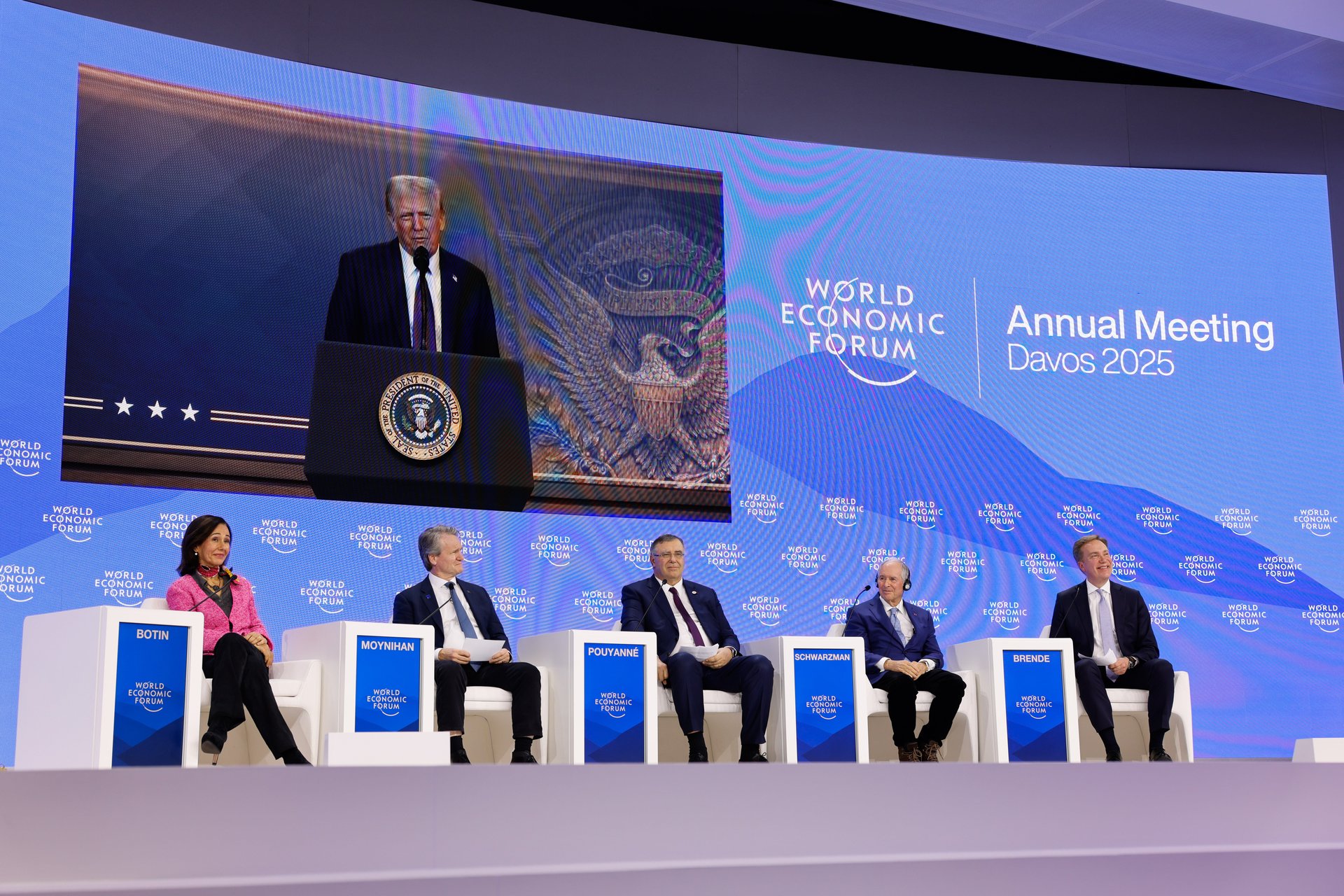Trump says he will demand that interest rates 'immediately' drop
The president again pressured the independent Fed to cut interest rates as he spoke to the World Economic Forum in Davos

President Donald Trump on Thursday said he would lobby the Federal Reserve to lower interest rates, signaling that he will continue his criticism of the independent agency.
Suggested Reading
While virtually addressing a consortium of business leaders and foreign heads of state at the World Economic Forum, Trump said he would demand that interest rates fall “immediately.” Although he did not mention the Fed by name, the central bank is the governing body that issues rate adjustments.
Related Content
“I’ll demand that interest rates drop immediately,” Trump told the group in Davos, Switzerland. “And likewise, they should be dropping all over the world. Interest rates should follow us all over.”
It’s not new ground for Trump, who repeatedly criticized the Fed and Chair Jerome Powell — who Trump nominated to lead the Fed’s board of governors — during his first term in office. Powell’s second term as the Fed’s chair is set to expire in May 2026.
In March 2020, Trump told reporters that he had the “right to remove” Powell and criticized his “bad decisions.” Last October, however, Trump said that the president should not “be allowed to order” the Fed’s interest rate decisions, adding as a caveat that he should be allowed to comment on them.
“You show up to the office once a month, and you say, ‘Let’s flip a coin,’ and everybody talks about you like you’re a God,” Trump said at an October event hosted by the Economic Club of Chicago, criticizing Powell.
Powell, for his part, has largely ignored the president’s comments, at least in public. When asked during a press conference in November whether he would resign if asked by the Trump administration, Powell gave a brusque answer.
“No,” he said.
“Not permitted under the law,” Powell added, when asked if Trump could fire or demote him. The president in December told NBC he has no plans to fire Powell.
Congress gave the Fed independence from the White House so it could make policy decisions without being subject to pressure, even if it meant enacting moves that brought near-term pain. Politicians and consumers generally dislike higher interest rates, which encourage more saving and less short-term spending.
In December, the Fed voted to lower rates by 25 basis points, bringing the benchmark federal funds rate to between 4.25%-4.50%, down a full percentage point since September. Next week, the Fed will have a two-day policy meeting that ends on Jan. 29, Wednesday.
